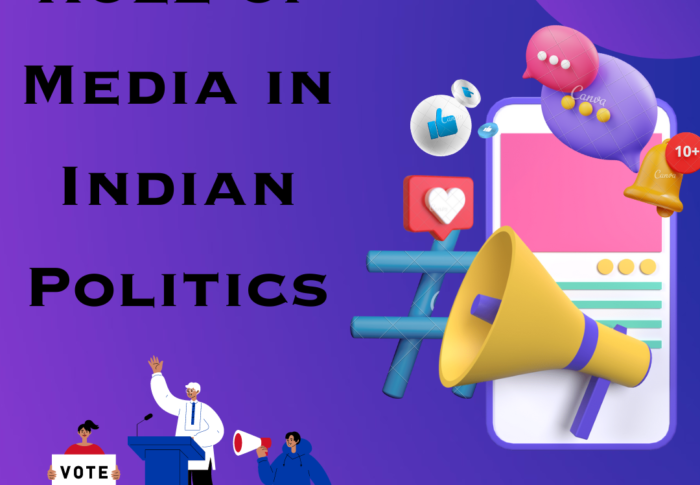
Love in Virtual Era | Online Dating
AUTHOR : SHIKHA MISHRA
Introduction
We live in a world where technology has become an intrinsic division of our life. It is hard to assume a life without it. This technology uprising has led to a platform where an individual can meet and unite based on specific liked or disliked touchstone and one such platform is Online Dating. Online Dating (referred to as Internet dating) is a way for people to scrutinize and get in touch with one another by way of the web to arrange a date, generally to develop a private relationship.
To use Internet dating, an individual turns out a user account on a dating website and then generates a profile with photos, descriptive details, and match preferences. Although the interesting attributes of online dating services present a user with potential dates, it is also possible for a user to look for dates based on their age, location, religion, and other inclination. Users can then make contact with a possible date utilizing texting or email services provided within the internet dating service.
Although, crimes on these platforms are no new fact to the world. There have been several cybercrimes concerning online dating which have resulted in a lot of distress. The very attribute of anonymity and convenience mobilize romance frauds within cyberspace. After all, not most are trying to find love on the internet; some are trying to find money as well. There are various tactics employed by scammers to steal money together with your heart.
Issues & Rationale
Cyberspace has become a substitutional approach for exploring romantic attempts. The swift development of communication technology and the internet offers a substitute medium to seek out, scrutinize, and date people of numerous personalities. Several factors make online dating attractive to forthcoming customers. Scammers target single people or widows trying to find a second chance at love. They propose to the victim abundantly about their love towards them and trick them to transfer money to them mainly through western union transfers or the other transfer techniques with security ambiguity.
Fake identities are one of the biggest advantages of scammers. It is more or less impossible to tell if the user of the account is literally the person who is inclined or asserts to be. Even genders can be defrauded. Man posing as women through using stolen pictures of girls from the web and blackmailing young daters to extort money, thanks to the stigma fastened with online dating, has led to a lot of cases blowing people’s minds off. Furthermore, large numbers of escort agencies use stolen pictures of girls to entice young singles and extort money and blackmail them in the name of the stigma attached and public shaming to avail escort services. Frauds such as these can destroy an individual’s life to an extent where there is no option for reform or amendment.
Laws Associated
According to Section 66-D of the Information Technology Act, 2000 assists discipline for using so on combi personation a personal computer asset. This legitimate attainment defined as under: “Whoever, by means for any specialized gadget or Personal computer asset cheats by personating should be declined with the obsolete of either portrayal for a term which could extend up to three years and might moreover be subject to a fine which could extend up to one lakh rupees.” This attainment conceives that if a person expects the character or appearance which isn’t what he truly is or occupies oneself as somebody he truly isn’t, particularly with a dishonest goal, then the casualty can record dissension before the Adjudicating Authority under this procurement. The casualty has often recompensed a fine of up to 1 lakh Rupees.
The provisions under the Information Technology Act give that the Adjudicating authority is needed to listen to and choose an application within 4 months, and thus the whole matter shall be chosen in 6 months. The internet dating and wedding gateways can as well be held obligated under the Information Technology Act as there are sure liabilities connected with “Delegates” in the Information Technology Act.
What is Fake News?
Fake news, or in other ways called pseudo-news, garbage news or hoax news, is a type of news consisting of deliberate disinformation or tricks spread via conventional news media or online social media. Digital news has brought back and widened the usage of phony news, or yellow journalism. The news is then regularly reproduced as falsehood in internet-based life yet once in a while comes across its way to the prevailing press as well.
Spreading Rumours
Since the time the Covid-19 pandemic blow-up was first detailed in Wuhan- China, online life stages have been dazed with posts on the trouble. At the beginning of February, when mindfulness about the disease arose in India, web-based life stages have seen numerous posts on Covid-19 — going from data on the episode to fake news about its origin unconventional weight control plans. Presently, such deceptive posts not just enhance the danger of phony news, making turmoil and dissatisfaction, yet also bring about protection infringement as clinical records of tried individuals are by and large obstinately coursed on the web.
In a couple of cases, fake clinical reports have additionally been brought out for random people and subsequently, people are associating them with having the illness and socially boycotting them. Such a flood of substances makes it hard for people to filter authentic news from the fakes. It moreover darkens the very much planned method by the government, where it uses innovation and internet-based life along with communicating media to refresh the people on the predominance and spread of the infection, particularly on the safeguards brought with the correct wellbeing and cleanliness liability.
Nevertheless the alerts and concerns, various awful personalities try to create and spread phony posts. A bigger area advances them across gatherings, often out of numbness or the fervor of turning into a ‘news breaker’. In this unique circumstance, we need a lot more extensive mindfulness work out, including all partners, to make each segment of the public mindful of the laws and measures just as the hurtful impacts of phony posts.
Measures to stop Fake News
Web-based life administrators have to similarly play an increasingly dependable job. Under the Information Technology Act and the principals stated in April 2011 for web-based life go-between, their risk didn’t appear on the chance that they were not accountable for the inception, transmission and gathering of matter through their systems. With the experience of more than 10 years with this business, as usual, they certainly ought to be able to make increasingly driven strides and not sit tight for the law application or legal references to bar counterfeit matters off their foundation or square those senders. By and large, this would have been conceivable if the updated rules for representative would have been advised at this point, as the extended arrangements in that, as coursed earlier, figured a closer duty from the representative.
Even the decade-old changed Information Technology Act with an amendment would have fastened the delegates’ job intently considering the innovation activation since the last amendment. Therefore, legislative authorization offices need to make a move against counterfeit matter transmitters and generators, and for that, their ability generally must be expanded both as far as numbers and quality. Some State police authorities made captures as of late, yet there is a more substantial need additionally to take a gander at the present laws to legitimately address counterfeit news. A major portion of the advanced society would have vouched for an industry-wide self-restriction and weeding system.
In mid-February, such an attempt was by a couple of the significant intermediary people working in India, such as Twitter, Facebook and Google declared, about shaping an Information Trust Alliance (ITA) to get rid of phony substance. This is an ideal opportunity to shape it further and give it more substance and teeth. The phony news stream around the Covid-19 pandemic gives them more motivation to believe as progressively effective. They have to grow their system of actuality checkers. India must use rules in the Information Technology Act, Indian Penal Code, and the Disaster Management Act to control fake news and start an utmost mindfulness battle on fake news and security breach.
Conclusion
Without any doubt that technology and the internet have brought individuals close and have also helped form a lot of relationships but it is completely absurd to ignore the consequences of the disadvantages of the source. Every development has its own positives and negatives. When people meet online, it’s easy to lie about who they in fact are and their intentions. However, an inventory of qualities can help spare down the search, it doesn’t necessarily mean that an ideal match is going to be turned out.
Internet dating may be a contented topic but if an individual addresses it with sense and caution, there’s no telling what may ensue. There have to be more precautions through favorable services. Processing towards situations that can cause lifetime disturbances only for building particular relationships is not worth it.
Endnotes
- https://www.indiacode.nic.in/bitstream/123456789/1999/3/A2000-21.pdf
- https://www.legistify.com/blogs/view_detail/23-cyber-laws-against-matrimonial-and-dating-websites-fraud/
For more information Visit Our Site






